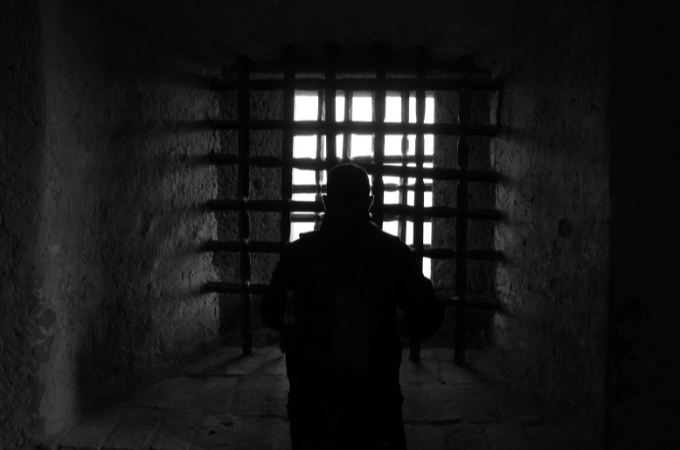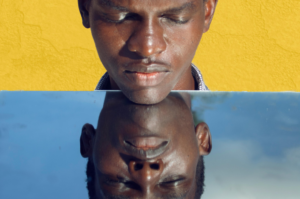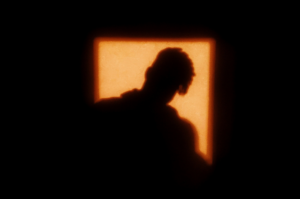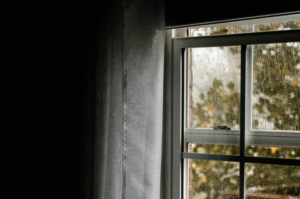
Dedicated to Caro Louise Ndialle, another victim of violence in Cameroon
Slumber disowned Ebanda whenever he could see the moon from the window of his jail cell, a glowing silver hanging in the purple and black sea of the Buea sky by the mountain. The noctilucent clouds, tinged with brightness as they passed above, told him stories of himself, the ones he didn’t understand while he lived them. But sometimes, the clouds told him of things to come. Sitting on the floor in his red Nike shorts, his arms on bent knees, and rocking to the cadence of his visions was his sole embrocation. Glimpses of the future reached him, defying the steel bars.
“Our resident prophet,” most of the gendarmes walking by would say, sometimes poking Ebanda with their batons. They were usually drunk; the ones on duty drank while those coming to replace them were drinking. At shift change, they would trade stories of the night, of women they were coming from or going to. Then they exchanged whistles and guns, signed logs, and said goodbye.
Ebanda ignored their taunts and tales, listening to the light in the sky. It had answers.
Six months before, Ebanda was put in solitary confinement, a former toilet in the basement of the gendarmerie in Buea. It smelled like it looked, a concrete square filled with shit. There, the gendarmes shoved Ebanda a day after arresting him for publishing a polemic poem about Cameroon’s corruption titled “Biya, Chop Broke Pot.” Ebanda’s incarceration devolved to feculence after he punched a fellow prisoner who’d grabbed his buttocks and requested a tribute.
“I am a tribute to myself,” Ebanda had cried, striking the man.
The gendarmes broke up the fight. Then they punched and kickedEbanda, whipping him with their belt buckles, striking him with batons, shoving him in the shit hole of the building. They shouldn’t have because that was the night Ebanda first heard with new ears, the cry of the moving sky. But he also saw with new eyes.
“This one, he thinks he’s too good to give bribe,” one of the gendarmes said when they came to release him into the general prison population the next day. “Every man pays tribute, you hear me?
“Taxi drivers, they pay us bribe so we give some to the commissioner, you hear?” another said, hot breath in Ebanda’s face, pointing a crooked finger with no nail.
“It is the way of the world,” the former said. “Even for white man country, only with plenty lawyers dem.”
“So get with the program or live in shit,” said the other.
Ebanda ignored them because of what he’d seen the night before, just as the moon came around the Buea mountain—his first vision.
It was a juju dancing at the parade field. Its human feet had ankle bells and rattlers, its body was made of rattling spines, and its carved bullhead turned around on a bejewelled long neck. It danced like an aggrieved tempest, tunning this way, then that, running, stopping, stomping, then taking off again. A crowd lynched a gendarme to the juju’s gyrations but when a little girl with a bullet-shattered skull descended from the clouds in the middle of the field, the dancing terror wailed everything to tears: dogs, cats, goats, children, mothers, and fathers. A great cry was heard in Buea.
In his silence, Ebanda knew he’d seen around the curve of time. That’s why he kept looking out his window with teary eyes, trying to see the future of his wretched nation.
Photo by Eleni Afiontzi on Unsplash









Lauren Daly December 08, 2023 14:50
You would think this being the case that people of color would be happy to be living in America.